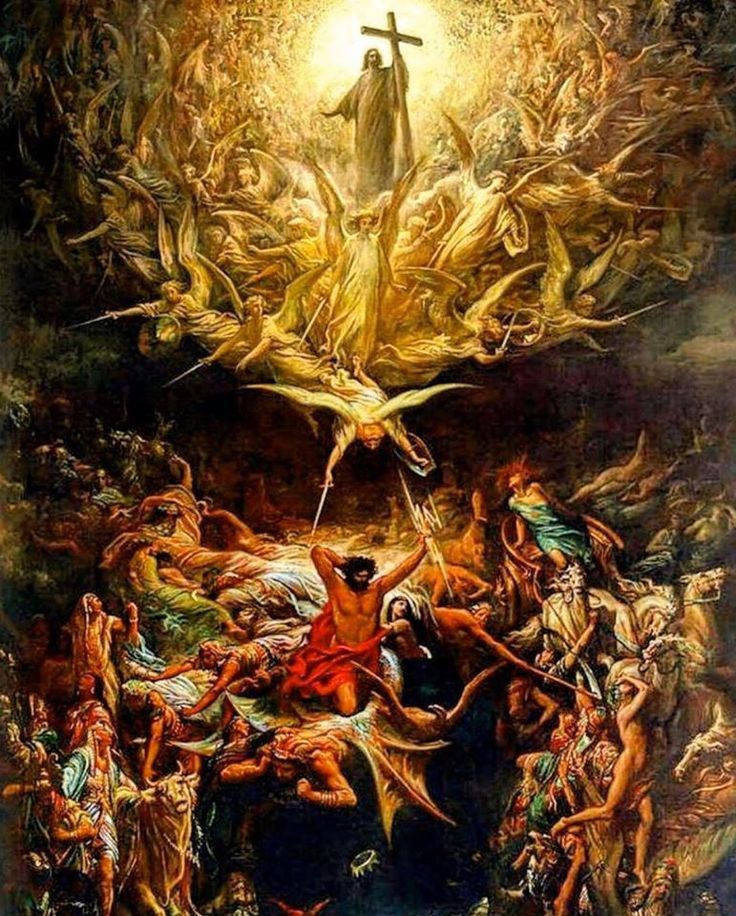By Tim Rohr
Today is November 2, and the Feast of All Souls or All Souls Day: the day when we as Catholics particularly remember and pray for the faithful departed.
The Divine Office for the day begins with this Scripture:
“But we would not have you ignorant, brethren, concerning those who are asleep, that you may not grieve as others do who have no hope. For since we believe that Jesus died and rose again, even so, through Jesus, God will bring with him those who have fallen asleep,” (1 Thess 4:13-14).
It caught my eye as another place in Scripture where Purgatory is alluded to. As we know, the concept of an intermediate place or state of purification, Purgatory, is not only not accepted by most, if not all, non-Catholic Christians ("NCC"), and even many Catholics these days, but was the central point of division which led to Luther's protestant revolution.
The typical NCC attack is based on the point that the word "Purgatory" isn't found in the Bible. The usual Catholic response is that the words "Trinity" and "Incarnation" are not found either but the concepts are clearly inferred.
The challenge with Purgatory is that the usual Catholic scriptures to support the reality of Purgatory are found in New Testament parables or a couple places in the Old Testament, one of which is the 2 Maccabees, a book non-Catholics don't have in their Bibles.
I wrote about that extensively here and proffered what I think is a more clear reference to Purgatory as found in Revelation, however, the above Scripture gives another reference to Purgatory that I haven't seen used, at least not in the Catechism or Apologetic circles. So let's take a look.
“But we would not have you ignorant, brethren, concerning those who are asleep, that you may not grieve as others do who have no hope. For since we believe that Jesus died and rose again, even so, through Jesus, God will bring with him those who have fallen asleep.” (1 Thess 4:13-14).
The words "those who are asleep" means those who have died. For NCC's who do not accept Purgatory, those who have died either go to Heaven or Hell, and for NCC's, the fate of the dead is clear: if they accepted Jesus as their personal Lord and Savior the dead go to Heaven, and if they didn't, they go to Hell. And for most NCC's, the fate of the dead is usually assured because the confession of faith must be a public thing.
However, if this is the case, then there is no reason for Paul to speak of "hope." There is no reason for us to hope the faithful departed is in Heaven if salvation was assured by a confession of faith while still alive. And there is no reason for hope if the person is in Hell, since Hell is an eternal sentence with no possibility of parole.
"Hope," as used here by Paul can only refer to those who have died and who may still gain Heaven as those would be the only souls we could "hope" for.
There is also more to be said about the term "fallen asleep." The above Scripture says: "through Jesus, God will bring with him those who have fallen asleep.”
We know that those who are with Jesus in Heaven enjoy the beatific vision and are very much alive in Christ. They are not "asleep."
NCC's will argue that "sleep" only refers to the body and not the soul, but this is out of whack with "through Jesus, God will bring with him those who have fallen asleep." Of course we believe in the Resurrection of the body, but clearly Paul isn't speaking of that here. He is speaking of those who have died, here and now, not the end of time.
Thus, "those who have fallen asleep" can only refer to souls who are waiting for Jesus to "bring with him." The only possibility for "waiting" after death is the Catholic doctrine of Purgatory.


